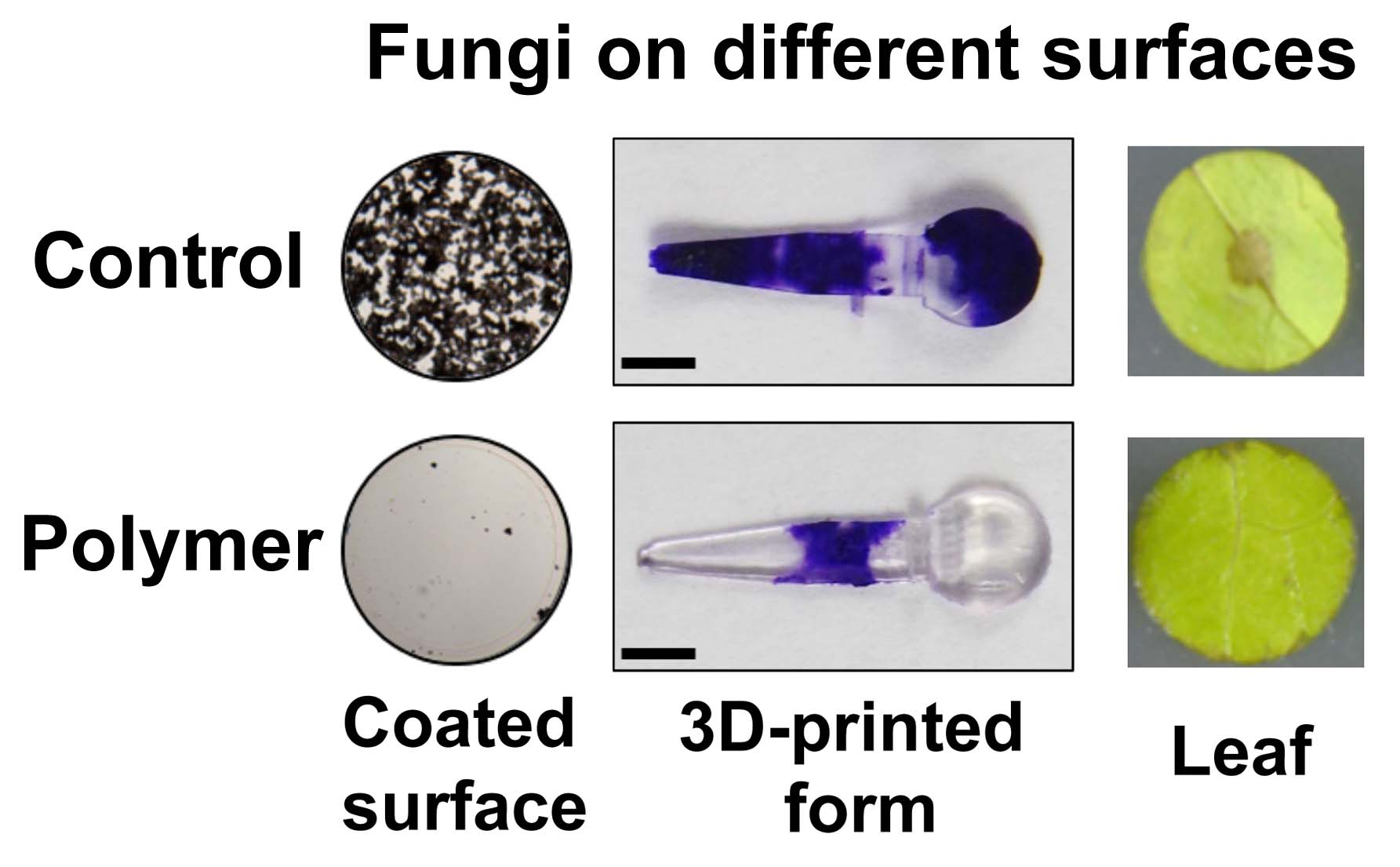Friday, 05 June 2020
Scientists from the University of Nottingham have developed a new way to control harmful fungi, without the need to use chemical bioactives like fungicides or antifungals.
Scientists from the University of Nottingham have developed a new way to control harmful fungi, without the need to use chemical bioactives like fungicides or antifungals.
Fungi cause diverse, serious societal and economic problems in the UK and globally. As well as causing fatal diseases in humans, fungi devastate food crops and spoil valuable products and materials. This has led to an antifungals/fungicide industry worth around $30bn globally.
There are tight regulations around the use of fungicides and antifungals and there is also growing resistance of fungi to these agents.
In a paper published today in Science Advances, experts from the University’s Schools of Life Sciences, Pharmacy, and Engineering, show how they have developed an innovative solution to tackle fungi, by passively blocking fungal attachment to surfaces using a coating of (meth)acrylate polymers, and so negating the need to use potentially harmful anti-fungals or other bioactive chemicals.
Through previous work, the team found different combinations of fungicides which worked against fungi and also produced new understanding of preservative action against spoilage fungi.
Although these advances meant less use of certain fungicides and chemicals, frequent tightening of regulations around usage are restricting the take up of technologies that still rely on bioactive agents, while spread of resistance worsens the problem. Consequently, potential bioactive-free technologies for combatting fungi are highly attractive to the industry.
In this latest study, scientists show an alternative fungal control strategy, which doesn’t have the ‘killing affect’ of fungicides.
The team identified polymers that resist the attachment of different kinds of fungi, including pathogens. They screened hundreds of (meth)acrylate polymers in high throughput, identifying several that reduce attachment of the human pathogen Candida albicans, the crop pathogen Botrytis cinerea, and other fungi.
 Fungi on different surfaces
Fungi on different surfaces
Professor Simon Avery, from the School of Life Sciences at the University is a lead investigator on the paper, he said: “This is the first high-throughput study of polymer chemistries resisting fungal attachment.
“Our engagement to date with industry has highlighted a clear need for a new approach to control fungi and the major socioeconomic problems that they cause, as the value of existing strategies using bioactives (antifungals, fungicides) is eroded by growing resistance and regulations.
“This passive, anti-attachment technology that we have been developing addresses this need."
We have been able to show that different polymers are effective in resisting diverse fungi that have broad socio-economic impacts.”
Story credits
More information is available from Professor Simon Avery from the School of Life Sciences at the University of Nottingham, at simon.avery@nottingham.ac.uk
Notes to editors:
About the University of Nottingham
Ranked 97 in the world and 17th in the UK by the QS World University Rankings, the University of Nottingham is a founding member of Russell Group of research-intensive universities. Studying at the University of Nottingham is a life-changing experience, and we pride ourselves on unlocking the potential of our students. We have a pioneering spirit, expressed in the vision of our founder Sir Jesse Boot, which has seen us lead the way in establishing campuses in China and Malaysia - part of a globally connected network of education, research and industrial engagement.
Nottingham was crowned Sports University of the Year by The Times and Sunday Times Good University Guide 2024 – the third time it has been given the honour since 2018 – and by the Daily Mail University Guide 2024.
The university is among the best universities in the UK for the strength of our research, positioned seventh for research power in the UK according to REF 2021. The birthplace of discoveries such as MRI and ibuprofen, our innovations transform lives and tackle global problems such as sustainable food supplies, ending modern slavery, developing greener transport, and reducing reliance on fossil fuels.
The university is a major employer and industry partner - locally and globally - and our graduates are the third most targeted by the UK's top employers, according to The Graduate Market in 2024 report by High Fliers Research.
We lead the Universities for Nottingham initiative, in partnership with Nottingham Trent University, a pioneering collaboration between the city’s two world-class institutions to improve levels of prosperity, opportunity, sustainability, health and wellbeing for residents in the city and region we are proud to call home.
More news…